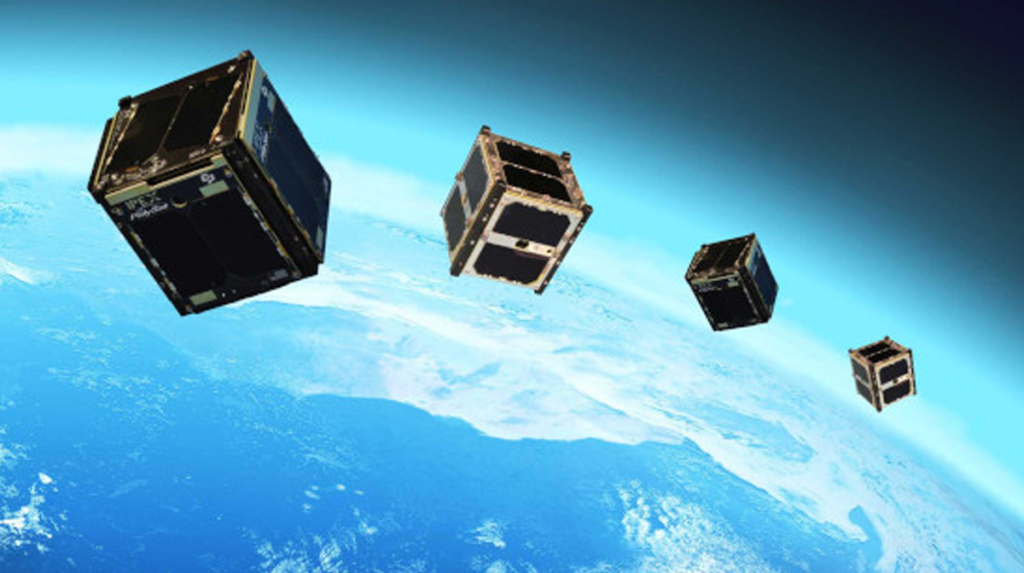More countries are keen to deploy satellites in orbit in 2024 including Zimbabwe which plans to launch its second satellite, the ZimSat-2, in November.
Zimbabwe Joins Africa’s Space Race, Strengthening Climate Defense

Africa is ramping up efforts and investments in space technology, exemplified by initiatives like the upcoming launch of the African Development Satellite later this year. These satellite programs aim to enhance Africa’s capacity to predict, monitor, and respond to climate-related challenges.
Reporting by Bonface Orucho, Bird Story Agency
The African Development Satellite, a collaborative project by Egypt, Kenya, Nigeria, and Uganda, is poised to launch later this year. This ambitious initiative promises to revolutionize climate monitoring across Africa, marking a significant leap forward in the continent’s use of technology to bolster climate resilience.
According to Space in Africa, a Lagos-based consultancy company on Africa’s space industry, “the Chief Executive Officer of the Egyptian Space Agency, Dr Sherif Sedky has announced that the project is on track to be launched at the end of the year.”
“Dr Sherif Sedky elaborated that the African Development Satellite focuses on climate change studies,” Space in Africa explained in a news report on June 23.
A prototype of the AfDev-Sat satellite, designed to aid disaster monitoring, climate change detection, agriculture and water resources monitoring across Africa was showcased at the COP 27 climate conference in Sharm El-Sheikh.
Each of the four countries involved in the project had engineers trained at the Egypt-headquartered African Space Agency and delegated to develop the satellite’s subsystems.
The completion of this landmark project will be a huge step in the continent’s use of satellite technology to build climate resilience.
According to Harsen Nyambe Nyambe, Director of Sustainable Environment and Blue Economy at the African Union Commission, “Satellites are a very reliable source of weather and climate data in Africa because, in most African countries, there are very few weather stations on the ground.”
“Satellites are important in providing information about rainfall, floods, droughts, wildfires, and other extreme events,” he explained when assessing the impacts of Cyclone Freddy in Malawi in May.
Progress on the African Development Satellite comes at a time when numerous satellite projects by African nations are taking flight. Notably, countries are increasingly highlighting their commitment to use satellite technology for climate and environmental monitoring.
The Space Generation Advisory Council reports that since 2016, African nations, led by Algeria, Egypt, Nigeria, and South Africa, have launched 41 satellites. While most were developed and launched abroad, a new trend shows these countries now designing and building satellites locally, marking a significant shift from past reliance on foreign involvement.
The made-in-Africa satellites that have recently been sent to space have heavily stressed and focused on the application of observed signals to improve climate change preparedness and build resilience.
Kenya’s Taifa-1, constructed and designed by Kenyan engineers from SayariLabs while Bulgarian firm EnduroSat aided in the testing and manufacturing of the parts, is one such satellite deployed in April 2023.
According to Sayari Labs, the satellite will be critical and will help “detect changes in agricultural farm produce and vegetation.”
In February 2024, Egypt launched its first domestically developed experimental satellite, NexSat-1, into space aboard China’s Jielong-3 (Smart Dragon-3) small orbital launch vehicle. The Egyptian Space Agency (EgSA) anticipates that NexSat-1 will play a crucial role in providing essential information and signals for exploring water systems and other functions.
More countries are keen to deploy satellites in orbit in 2024 including Zimbabwe which plans to launch its second satellite, the ZimSat-2, in November.

According to Africa Telecom Review, “ZimSat-2 will be equipped with advanced sensors and imaging devices for applications like mineral exploration, environmental monitoring, and managing droughts and human settlements.”
According to Space in Africa, seven African countries have reaffirmed their satellite launch schedules in 2024.
Besides, the sector is attracting investors. A 2023 DW Media report estimates the African Space industry hosts over 270 companies as of 2023 with the sector’s value expected to reach US$23 billion by 2026.
International initiatives like the Meteosat Third Generation (MTG) and the EUMETSAT Polar System-Second Generation (EPS-SG) with their respective MTG and Metop-SG satellites also promise to enhance climate preparedness in Africa, thanks to existing partnerships with African countries.
In a previous interview with the bird story agency, Stella Chelangat, a Geospatial Information Science consultant at the World Food Programme in the southern and eastern African region, emphasized the importance of satellite technology in enhancing climate monitoring, particularly for predicting agricultural outcomes.
“The African Development Satellite Initiative and other similar initiatives will facilitate pooling of resources allowing spreading of risks unlike when each state is working on their climate monitoring satellites, individually,” she explained.
“Africa has a rich potential of using satellite technology in climate monitoring, especially with the increased discussions on areas of space partnerships at the continental and internationally,” she added.





Comments